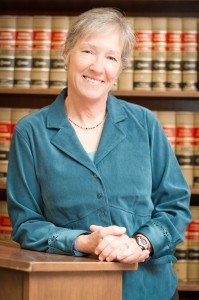By Michele Straube for EDRblog.org.
A landmark agreement in Daggett County demonstrates the value of dialogue on public lands issues. On October 22, negotiators jointly announced an accord that, pending Congressional approval, resolves issues that have been festering for decades.
County representatives stood side-by-side at the press conference with conservation groups, off-road vehicle advocates, state and federal government proclaiming success because each of them got a lot of what they needed and valued.
Some agreement highlights: Over 100,000 acres designated as wilderness or conservation areas. A 14-mile section of the Green River designated as wild and scenic. A land exchange providing SITLA with more than 10,000 acres for potential energy or resort development. Some federal land transferred to the county and others for infrastructure and economic development uses. County ownership of certain RS 2477 roads confirmed and other road claims dropped. Off-road vehicle routes established, while other areas will be free of motorized vehicles.
What can be learned from this experience that might prompt a similar resolution in other counties in Utah?
Focus on needs, not ideology. The issues included in the Daggett County agreement have been contentious ones across the state. Ideology, brinksmanship and personal attacks have historically carried the day. Conversations about wilderness, resource extraction, economic development, county roads and off-road vehicle use have often been couched in all-or-nothing absolutes, with advocates on either side characterized as extremists.
By contrast, the recent conversations in Daggett County centered on facts and interests. What does each party need to meet its interests, where do the needs coincide and where do they conflict?
Strive for consensus. Consensus is a desired end result, a point in time where all negotiators say they can live with and implement the agreement (even if it does not contain everything they hoped for). The negotiators of the Daggett County agreement were encouraged to continually strive for consensus. In practical terms, this means that no one can simply veto an idea and end dialogue. While disagreement should be expressed and reasons articulated, it carries with it a responsibility to suggest new potential solutions that might meet everyone’s needs. In this way, problem-solving conversations can continue.
Be realistic. Public lands negotiations are not undertaken in a vacuum. Each participant needs to consider its likelihood of success if no negotiated solution can be reached (the status quo). A demand for millions of acres of wilderness (the proposed America’s Red Rock Wilderness Act) has sat in Congress for 25 years. County and industry efforts to undertake resource extraction and economic development activities on public lands regularly face opposition, at best causing costly delay and at worst killing projects. RS 2477 road litigation has taken many years, cost millions of dollars, and few claims have been finally resolved. Uncertainty about achieving a perfect result encouraged the Daggett County negotiators to explore acceptable compromises that still met their underlying needs.
In comments on Representative Bishop’s Public Lands Initiative process published on August 17, I said “[a]lthough it is risky (and, yes, scary) to engage in dialogue about what really matters to the various stakeholders, this may well be the only path to resolution of this long-standing issue. It is time to take a risk, to take steps to ensure that each party’s underlying goals are understood and taken into account, and to create the opening for a problem-solving conversation.”
 The public lands agreement in Daggett County reflects the competing interests’ willingness to take the risk to engage in meaningful dialogue, which has resulted in a multi-faceted solution that has the players whispering “problem solved.” The next step is Congressional enactment of this historic agreement.
The public lands agreement in Daggett County reflects the competing interests’ willingness to take the risk to engage in meaningful dialogue, which has resulted in a multi-faceted solution that has the players whispering “problem solved.” The next step is Congressional enactment of this historic agreement.
This blog entry was also published as an OpEd in the Sunday 11/9/14 Deseret News.
Michele Straube is Director of the Environmental Dispute Resolution Program at the Wallace Stegner Center for Land, Resources and the Environment, S.J. Quinney College of Law, University of Utah.
